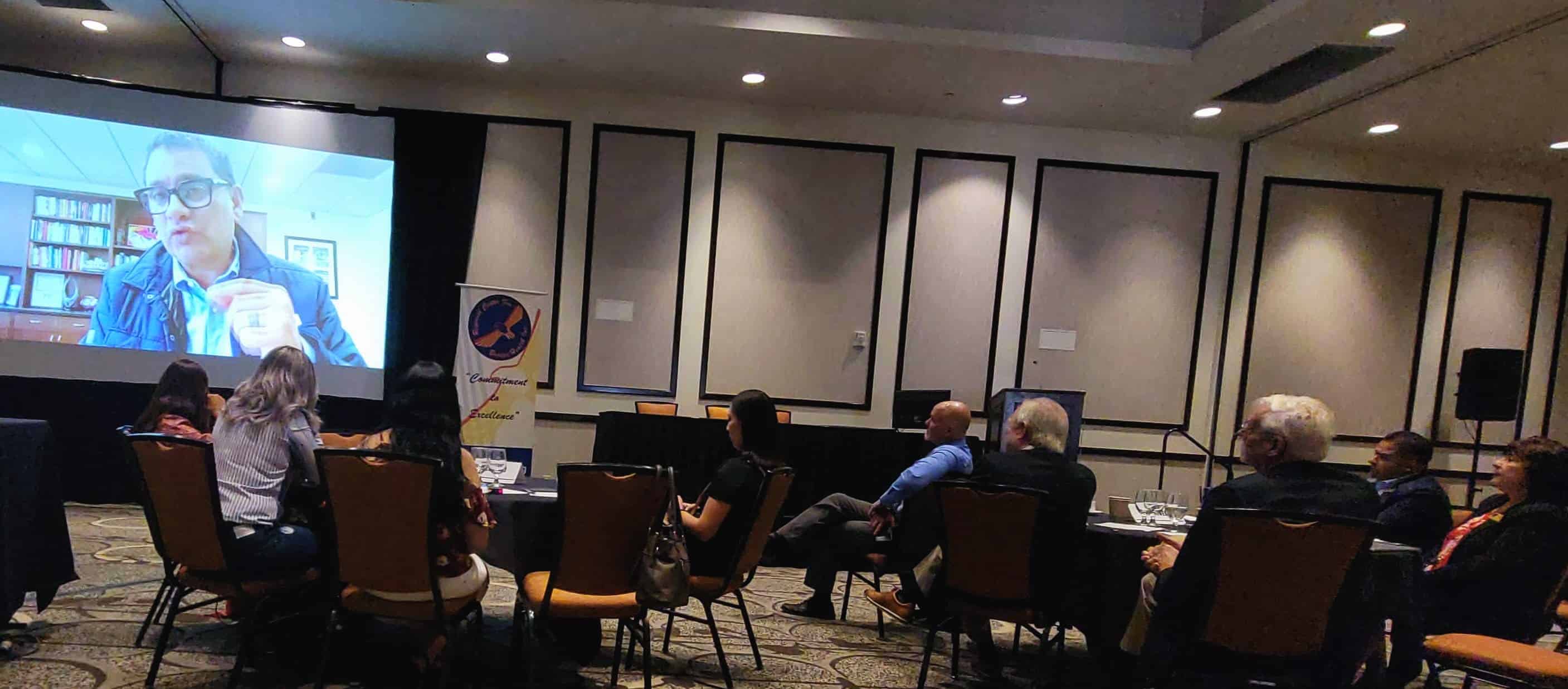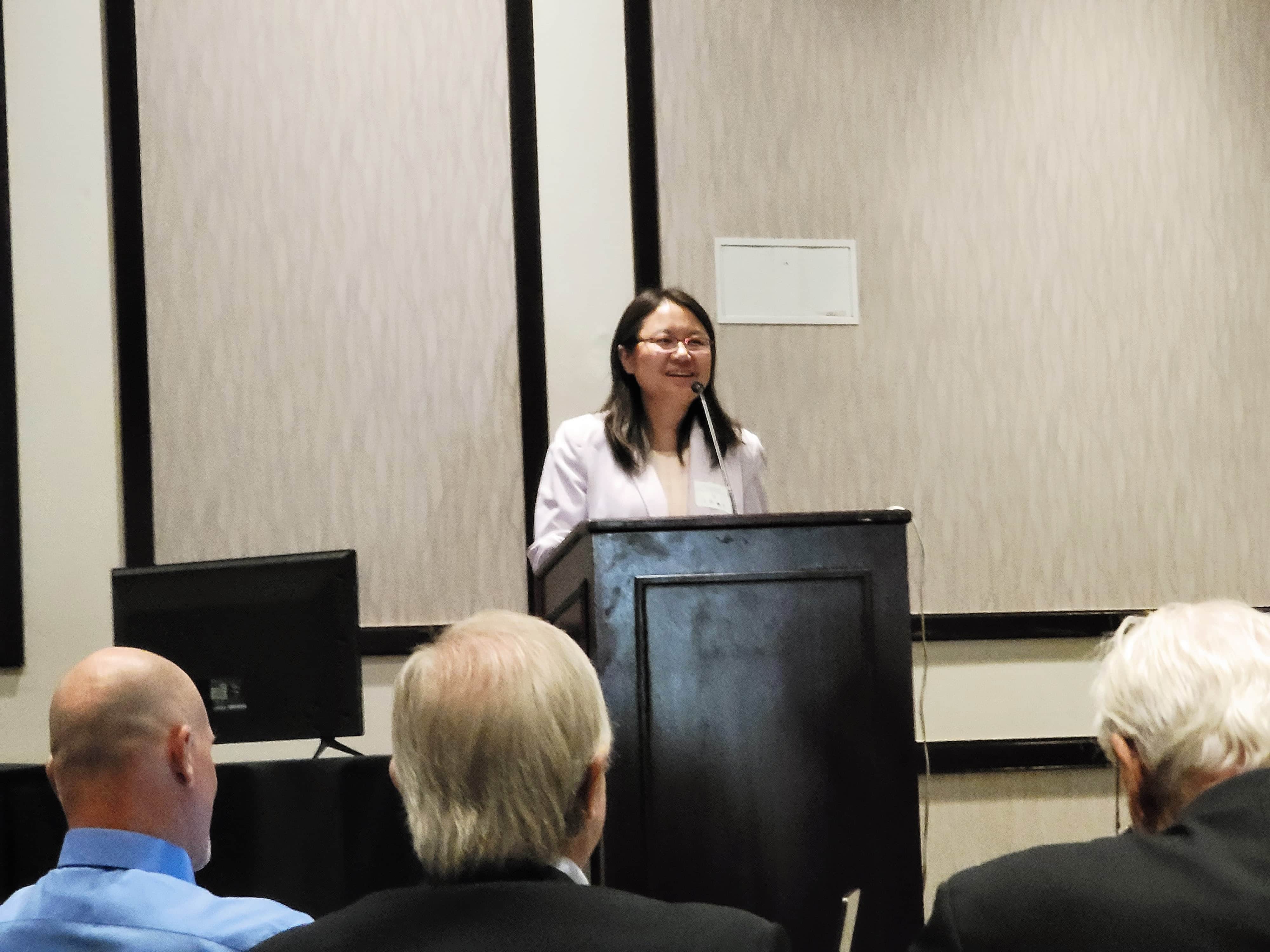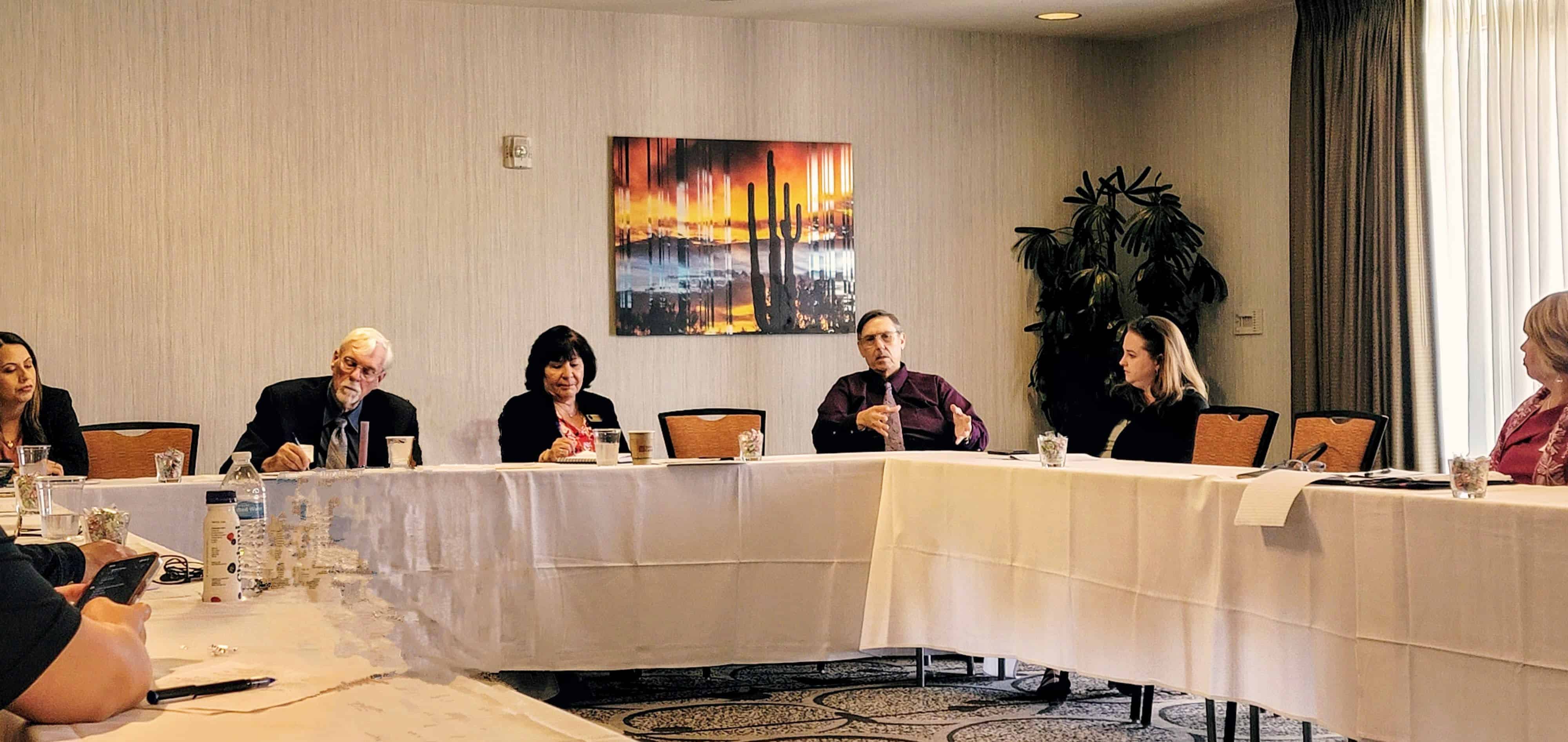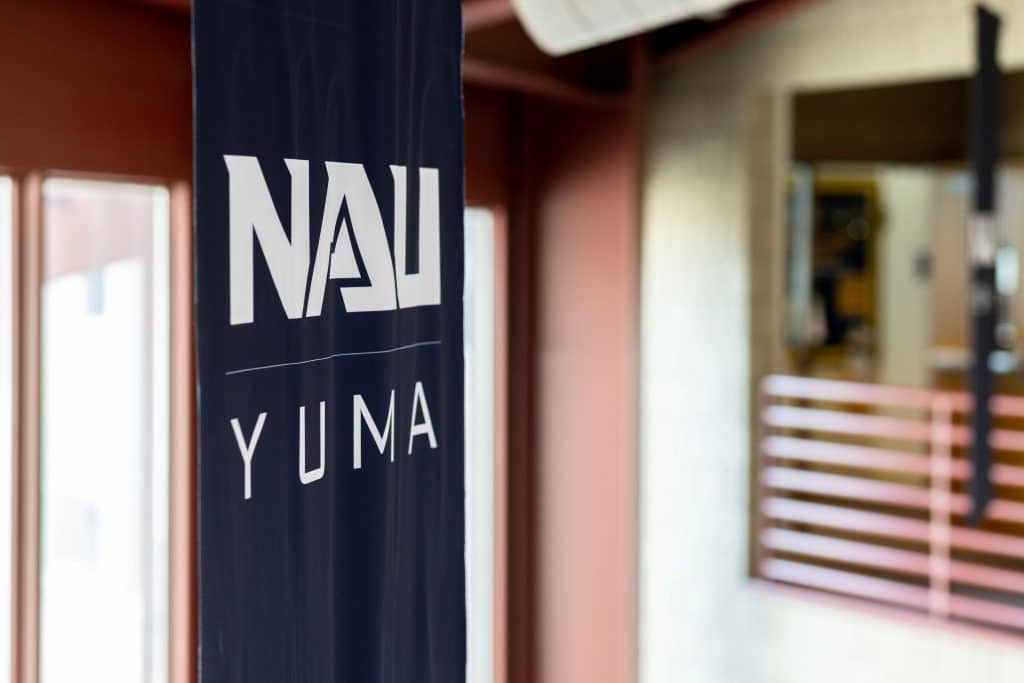Organized in partnership with NAU’s Center for Health Equity Research (CHER) and the Regional Center for Border Health, Inc. (RCBH), The Arizona Biomedical Research Centre (ABRC) has once again ignited the spirit of collaboration and innovation through its fifth annual Yuma ABRC forum. This year’s workshop brought together experts, researchers and educators to explore pressing topics in border health and discuss how research can be turned into actionable solutions. With a particular emphasis on educational partnerships with Mexican universities and cross-border credentialing, the forum aimed to foster academic connections and promote positive change in individuals, institutions and the region.
A lineup of distinguished speakers took the stage to share their inspirational insights. President José Luis Cruz Rivera, the forum’s keynote speaker, embodied the spirit of leadership and advocacy for expanding opportunities and improving educational outcomes. Cruz Rivera’s remarks at the forum reflected his unwavering dedication to NAU’s recently renewed Hispanic-Serving Institution (HSI) designation and the transformative power of education. Accomplishments highlighted included NAU en Español and the recent expansion of NAU’s accelerated nursing program to the NAU-Yuma campus. Having recently spoken and conferred degrees at the NAU-Yuma commencement, Cruz Rivera noted the experience is one of many highlights he looks forward to during that time as it is the culmination of many rewarding experiences.
“It really brings home the reality of what we do in our work—help shape a better future for generations by empowering individuals to live lives of purpose and embark on careers of consequence,” he said. “We transform lives precisely through education. I know everyone here today is committed to transforming lives by engaging in meaningful research. We aim to end disparities, and that is one of the distinctive forms of excellence that characterizes the work of NAU and the Yuma community.”

Several more NAU forum speakers shared their expertise, insights and vision for advancing health care and research. Michael Sabath, associate vice president and CEO of NAU-Yuma, shared his knowledge and experience in public policy and discussed the pressing issues related to border health. His presence emphasized the instrumental role NAU-Yuma plays in promoting educational partnerships and contributing to the region’s progress.
“This event is important because it’s one of the few opportunities we have to discuss health disparities, particularly with our colleagues in Sonora and Baja Mexico,” Sabath said. “We’re able to get together and work together to identify solutions in the areas of healthcare from education to workforce shortage.”
NAU VP for Global Affairs Yimin Wang, took the stage to shed light on the progress made by the Yuma group in educational partnerships with Mexican universities and cross-border credentialing. Wang delineated how NAU is committed to connecting research needs with culturally competent researchers while facilitating the growth of the health care workforce and fostering binational engagement. Wang’s presentation underscored one of the areas she thinks international collaboration can contribute to educational attainment or what she termed degree-based mobility. She discussed NAU’s efforts in facilitating educational pathways and credentialing for Mexican professionals and students in healthcare fields.

“In my mind, when it comes to academic institutions and international collaboration, the world is a canvas and the sky is a limit; that’s not even figurative,” Wang said. “We can do a lot of things to get there.”
Her presence also underscored the increasing emphasis on NAU’s role as an HSI and its commitment to fostering mutually beneficial relationships with Mexican universities. She discussed the significance of these partnerships in advancing knowledge, promoting cultural exchange and engaging in collaboration. NAU has worked to offer opportunities for cross-credentialing, research collaboration and training opportunities with universities in Mexico. Wang and several other speakers discussed COVID-19 as an example that highlighted the importance of border health and the need for collaboration while acknowledingobstacles that hinder such collaborations. During the height of the pandemic, the organizations were unable to meet in person and it was lost on no one that this was their second year back in person for this workshop.
Emma Torres, executive director of Campesinos Sin Fronteras, discussed the difficulty of providing health care to farmworkers throughout the border region during the Research Agenda and Community Outreach session. She noted day laborers had been known to work while sick, and many worked while having COVID due to a lack of access to sick time and facilities. Other organizations discussed their research regarding the lingering impact of COVID-19 on women, particularly concerning those who had contracted the virus and its potential effects on their breast milk. Other organizations focused on their outreach strategies to inform and educate communities in the areas affecting their health, from preventive measures to healthy lifestyles to basic necessities like ensuring children receive enough food. The group was tasked with addressing the economic impact on health care and potential barriers for people seeking health care. Lack of knowledge regarding medical research and resources available were noted as significant barriers.
Robert Trotter II, a Regents’ professor of anthropology and senior scientist in CHER, presented at the start of the workshop and led the Research Agenda and Community Outreach Group session. With his research background encompassing cross-cultural health care issues, social network impacts on health and organizational models for change, Trotter exemplified the interdisciplinary approach necessary for addressing complex health challenges. He guided the session alongside another workshop speaker, Amanda Aguirre, president and CEO of Regional Center for Border Health, Inc. and former Arizona state senator. Together they asked follow-up questions to participants attempting to gather background, research and potential solutions while welcoming input and discussion from other participants. The other working sessions during the workshop included the Binational group and the Workforce Strategic Partnerships group.
The Yuma ABRC Workshop Series built upon the success of previous workshops, which includes “Translational Research for Healthy Zones,” “Developing a Diverse Rural Healthcare Workforce,” “Lessons from a Pandemic,” and “Supporting our Future.” These workshops have reinforced the commitment to addressing pressing healthcare challenges and fostering partnerships across disciplines and sectors while providing valuable insights and opportunities for collaboration. The professionals in attendance seamlessly bridged language barriers, utilizing English translators and their Spanglish.

CHER collaborates with communities to establish health-supporting foundations through research, workforce development and community partnerships. Their research primarily engages populations facing disparities in access to care and health outcomes due to social determinants; the center’s research focuses on Native American, Latinx, sexual/gender minority and incarcerated populations. CHER received a grant from the ABRC Education program that began in 2016 and supports five workshops yearly. This event is a part of this program with the goal of bringing researchers, clinical professionals and national and local experts together to cover emerging topics in health care.
Cynthia Gerber | NAU Communications
(928) 523-7341 | Cynthia.Gerber@nau.edu




